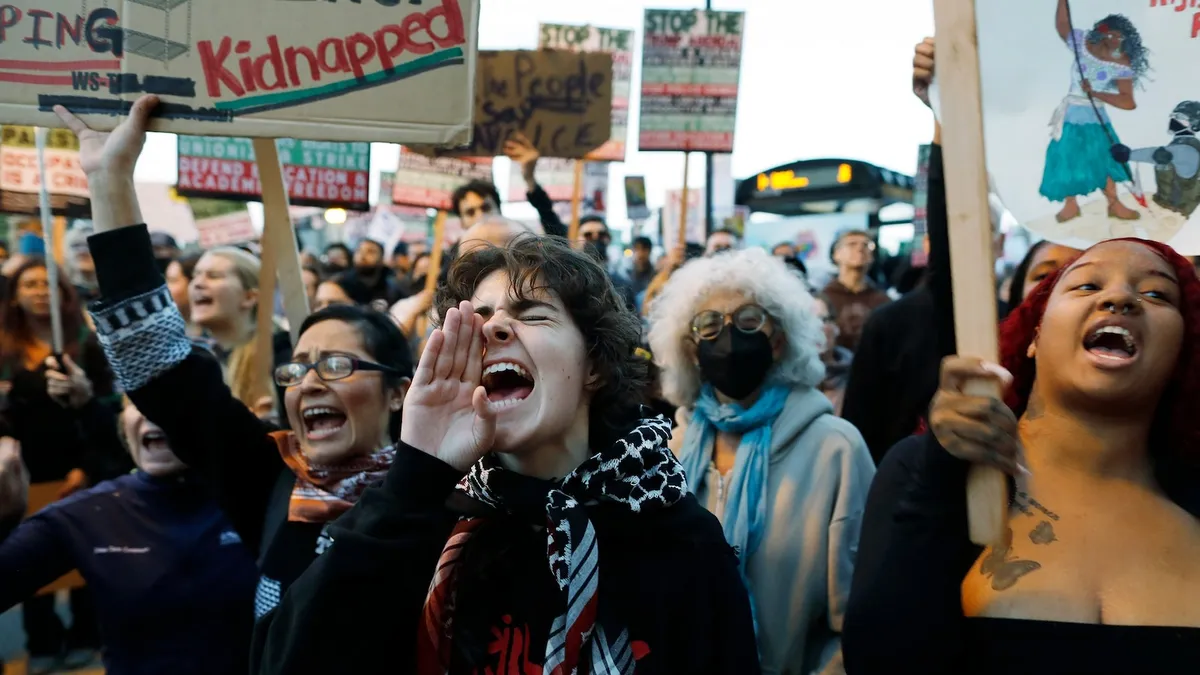
In a significant legal showdown occurring in two courthouses across the United States, President Donald Trump's efforts to deploy troops into Democratic-led cities faced critical challenges on Thursday. A district judge in Chicago issued a temporary restraining order (TRO) that blocks the deployment of National Guard troops from any U.S. state into Illinois. This ruling will remain in effect for 14 days, highlighting the ongoing legal tensions surrounding military involvement in civilian law enforcement.
District Judge April Perry determined that there is insufficient evidence to support claims of a rebellion threat in Illinois. She emphasized that the President does not need military forces to execute U.S. laws, stating, "The deployment of the National Guard to Illinois is likely to lead to civil unrest that requires a response from local and state law enforcement." Judge Perry further noted the inflammatory nature of ICE enforcement actions in the state, suggesting that deploying the National Guard would exacerbate an already volatile situation.
Before this ruling, Eric Hamilton, an attorney for the Department of Justice, argued that the Chicago area is experiencing a disturbing level of hostility towards federal law enforcement. He claimed that lawlessness in the city is exemplified by violent actions against the Department of Homeland Security and ICE personnel, including incidents where agitators have attacked federal facilities. Hamilton described the environment as one where there is a blatant disregard for law and order, justifying the need for a military presence.
Judge Perry pressed Hamilton for clarity regarding the scope of the National Guard's mission and authority. Hamilton described a limited mission focused on protecting federal personnel and property but acknowledged that the mission could expand depending on the evolving situation. He assured the court that if the mission changes, the plaintiffs would have the opportunity to return to court to challenge any new deployment actions.
In contrast, the attorney for Illinois asserted that tensions outside the ICE facility in Broadview have significantly diminished, thanks to local government restrictions on protest hours and protective measures implemented by the Illinois State Police.
Simultaneously, a three-judge panel from the Ninth Circuit Court of Appeals deliberated on whether to lift a lower court's order that prevents the deployment of 200 federalized members of the Oregon National Guard into Portland. On Wednesday, the Ninth Circuit issued an administrative stay to maintain the status quo as the case progresses. Oregon officials contend that the troop deployment reflects a broader initiative to merge military forces with civilian law enforcement, driven by misleading information about conditions in Portland.
Oregon's legal team argued that allowing the President such expansive discretion could set a dangerous precedent, enabling similar military interventions in response to civil disobedience nationwide. "The public interest is served by a judicial order preserving the rule of law in the face of unprecedented and unlawful Executive action," they stated in a recent filing.
A federal judge previously extended her order to prohibit any state's National Guard from entering Portland, suggesting that the Trump administration was attempting to circumvent her temporary restraining order by deploying troops from other states. Although this second order has yet to be formally appealed, the broader implications of presidential authority concerning National Guard deployments could surface during the appeals hearing.
In a filing earlier this week, the Trump administration argued that Congress has not imposed limits on the President's power to federalize the National Guard, nor has it authorized federal courts to question the President's judgment in mobilizing troops to support regular forces in response to civil unrest. This contention raises critical questions about the balance between executive power and judicial oversight.
Amid these legal proceedings, an amicus brief submitted by a group of former secretaries of the Army and Navy, along with retired four-star admirals and generals, urged caution regarding the broader use of the National Guard in domestic operations. They warned that deployments that violate the Posse Comitatus Act could undermine the Guard's essential missions of national security and disaster relief. Furthermore, they expressed concerns about the potential politicization of the military, which could adversely affect recruitment, retention, morale, and overall cohesion within the armed forces.
As this legal battle continues to unfold, the implications for the future of military involvement in civilian law enforcement remain a critical point of contention, raising questions about the intersection of national security and civil liberties in a democratic society.